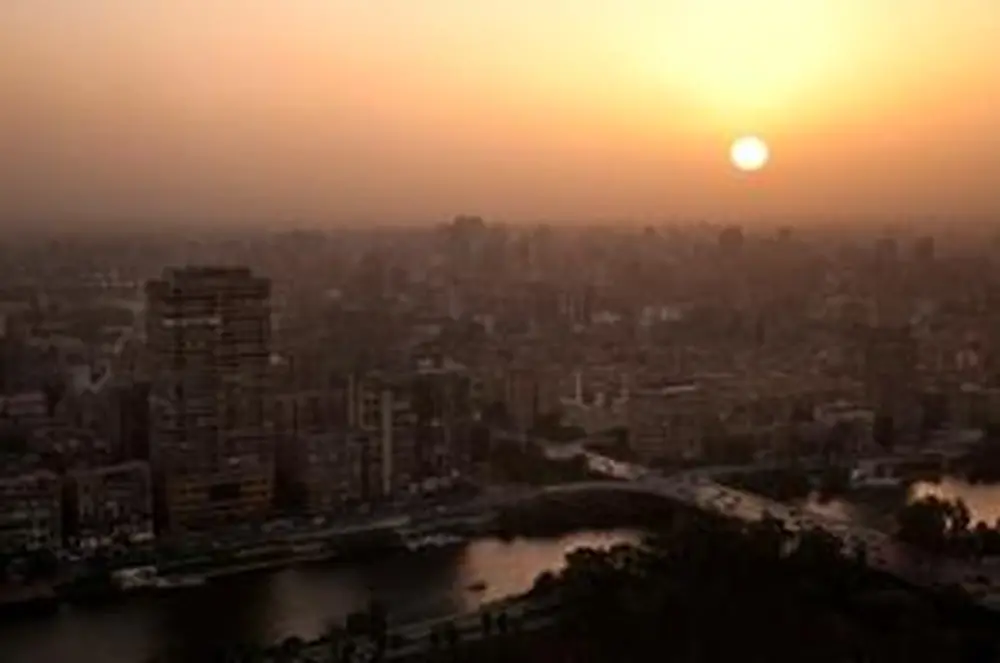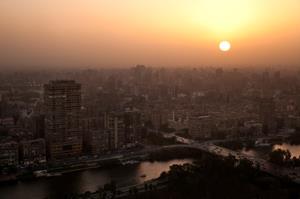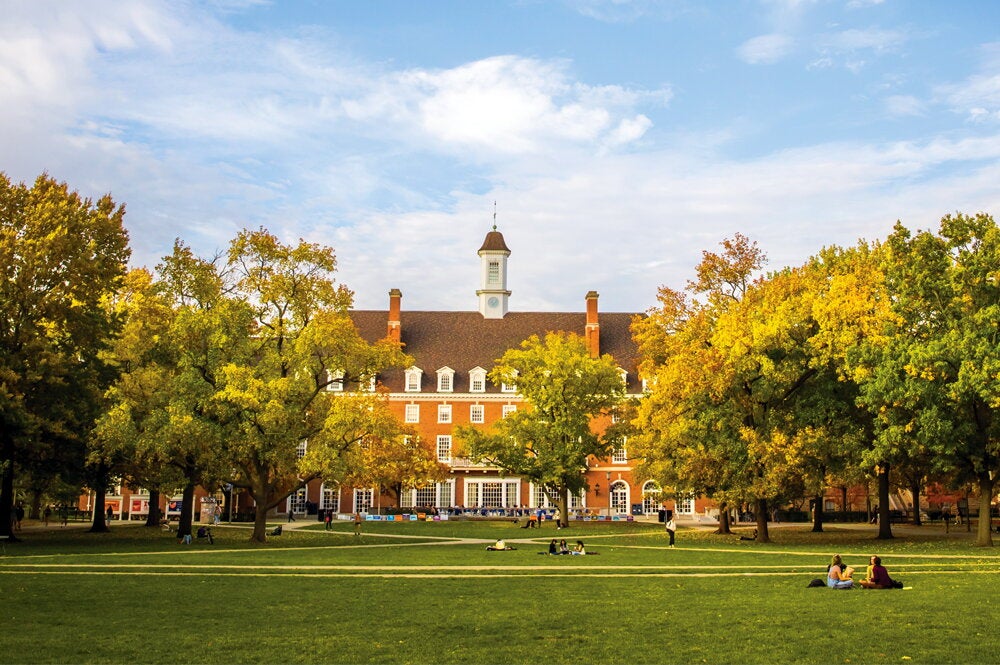

There have been only a few times in the last two weeks, as Egypt has erupted in protest, that Mohammad Khalil, a professor of religion at U of I, feared for his mother’s safety. The first time was when she drove into Cairo to retrieve medicine from her mother’s apartment near Tahrir Square, the site of unrest since January 25.
The other time was when the government cut off all Internet access, which affected not only his mother’s email service but also her phone. That was during the outbreak of violence in Tahrir Square in which hundreds of thousands of otherwise peaceful protesters clashed with supporters of President Hosni Mubarak. “One of her relatives was killed in the protests,” says Khalil.
Khalil’s mother is a journalist in Egypt—only four months on the job—which offers him a unique perspective on the events unfolding in his “second homeland.” He was born and raised in the vicinity of Lansing, Mich., where his Egyptian family had moved after his father, Hassan Khalil, received his PhD in electrical engineering in 1979 at U of I. (His mother studied psychology and completed a degree in business and logistics management at Michigan State before pursuing a career in journalism.)
His family returned to Egypt nearly every summer to visit relatives, and his mother moved back to Egypt two years ago. Using her Western education, she landed a job for the government-run, English-language newspaper, The Egyptian Gazette. Most of her reporting is from Sharm-el-Sheikh, a strategic naval port on the Gulf of Aqaba where Mubarak has his second home.
Khalil’s close connections with Egypt make it hard for him to remain silent as he watches a place he has been to “so, so many times” unrecognizable as a battlefield. Like many experts, Khalil believes the violence that killed his relative and others was provoked, a claim substantiated by police IDs found on many of the pro-Mubarak supporters. He is disturbed by the clip replayed over and over on the major news networks of Mubarak’s supporters riding through Tahrir Square on horses and camels hitting people as they pass.
“Why would they do that?” asks Khalil. “To create chaos? To substantiate the belief that if Mubarak leaves all hell will break loose? Egyptians are not aliens. They’re people too. They want their children to go to school, to have a functioning government. They don’t want war.”
What moves Khalil are less-televised scenes that capture the pain and generosity of the people he knows so well. One scene in particular showed “Muslims praying and Christians standing around to protect them; then of Christians praying during Sunday mass and Muslims standing around protecting them.”
Khalil’s relatives want change but are torn between the desire for immediate reform in Egypt and concern that if protesters push too hard, matters will only get worse. Khalil himself dismisses those who claim that Egypt isn’t ready for democracy, arguing that even if it has a bumpy start, it will almost certainly be better than tyranny.
The real revolution in Egypt, he believes will be society triumphing over its deeply rooted fear of instability. Muslim legal scholars will have to rethink the long-established principal that “1,000 years of tyranny are better than a single year of anarchy,” says Khalil, because the medieval sense of tyranny no longer fits in the modern context where the reach of authoritarian leaders is greater.
The revolt is significant, he believes, because the Egyptian people are overcoming what has been a crippling sense of powerlessness. “They stood up to a greater force and risked everything. Without a revolution, you have tacit approval of an existing system. This sends a clear message that people are willing to sacrifice for freedom. And that they can accomplish much on their own, without the help of foreign powers.”
How his mother feels about the demonstrations is something Khalil prefers not to share. Even here, he is worried about the long arm of Egyptian surveillance and the possible repercussions for his mother.
What he will say is that she wants improvement. “She wants a brighter future for Egypt’s people,” says Khalil. “Yes, that’s safe to say.”
